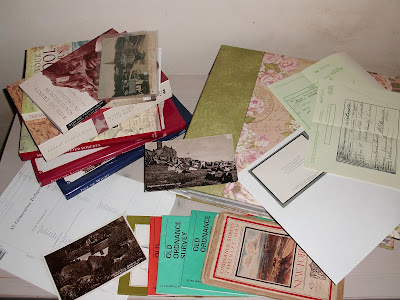Google
books can be a very useful website to help with your family history
research. The
search facility is easy to use. All you need to do is enter the
topic you want
to explore. Basic
searches for a place , a surname, an
occupation will produce a list of books,
journals and
magazines. You can
also search for information about institutions such as
workhouses or
hospitals. Details about Acts of Parliament also show up.
Your
search will produce a variety of different suggestions. Occasionally you will
find that a book is
only available at a particular library or archive. Usually it will be possible
to gain access on-line even if a book or journal is out of print. These
items can be downloaded to create your
own reference library.
Here are
a few examples of what is available.
Old
tourist guides will give details of an area when your ancestors lived there.
This link should take you to a guide book for the Isle of Wight dated 1846.
This
pamphlet from 1862 gives details of the poor law medical relief
available on the Isle of Wight.
available on the Isle of Wight.
Here a
1844 document has information about the House of Industry.
A copy of
The Farmer magazine gives details of the activities of seeds man Mr Toogood of
Southampton.
This
pamphlet from 1837 reflects on the Factory Act and the cotton industry.
There are
also details of court documents which might be difficult to obtain elsewhere.
I am
distantly related to Robert Emond, the Haddington Murderer. Just by typing his
name into a search engine it is possible to obtain a wealth of information.
Books containing the details
of his life, crime and trial are widely available. When I looked for the family
name in Google
books something else appeared. This link
gives details of the Court of Session held in Scotland. It shows that after
Robert's death his sister pursued his wife for money she claimed
Robert owed her. It is also interesting in that it tells how the wife's time in
prison had
damaged her health. She was to be allowed out of prison until her health improved.
Then she was to be detained again.
A summary of Robert Emond's crime and trial can be found on the right. ➨
Also, brief summaries of his family and that of his wife Mary Munro.➨
Also, brief summaries of his family and that of his wife Mary Munro.➨
My 4x great grandparents, Robert Emond and Sarah Waite, being his
grandparents.
Hint 😉 There are a wealth of hidden documents. You
only have to search.
